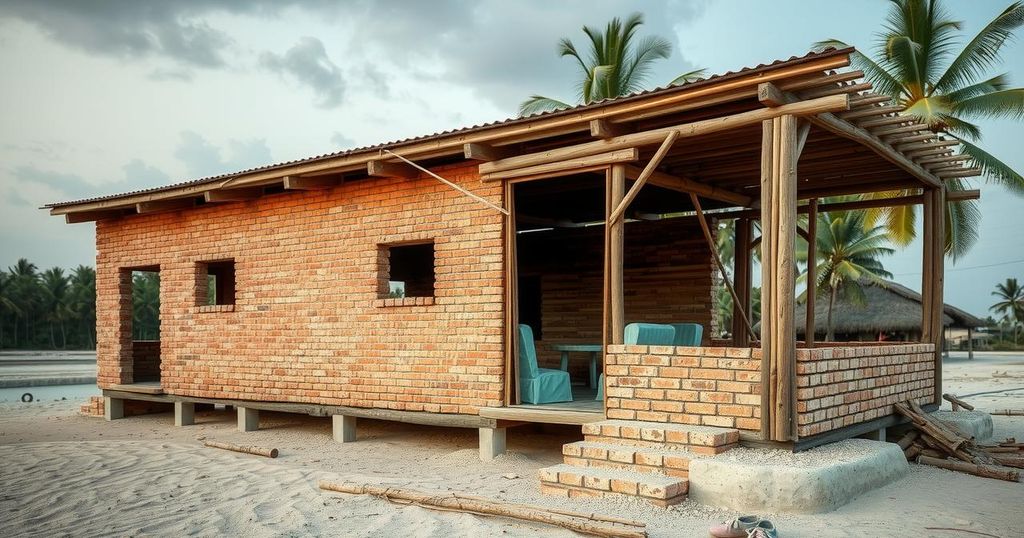Mozambique Takes Action to Build Resilient Shelters for Cyclone Chido Victims

Mozambique has commenced building homes for Cyclone Chido victims following the storm’s deadly impact, which resulted in 70 fatalities and over 600 injuries. Trade and Industry Minister Silvino Moreno stressed the importance of constructing durable shelters and noted a need for better construction practices. UNICEF reported that 174,000 people have been affected, with ongoing concerns about infrastructure damage and public health during the rainy season.
In response to the devastation caused by Cyclone Chido, the government of Mozambique has initiated the construction of homes for the affected victims this week. The cyclone, which struck three northern regions of the country on Sunday, resulted in the deaths of at least 70 individuals and injuries to 600 others. During a recent visit to the impacted areas, Trade and Industry Minister Silvino Moreno stated that the priority is to build shelters using resilient materials to mitigate future damages, as many existing homes were constructed from mud and reeds, proving inadequate against the cyclone’s strength.
Minister Moreno emphasized the need for improved construction training to ensure that communities can build more durable structures. Before impacting Mozambique, Cyclone Chido wreaked havoc in Mayotte, a group of French islands, leading to widespread destruction and increased risks for vulnerable populations, including asylum-seekers and refugees. The storm also inflicted heavy damage in southern Malawi, where strong winds and rains compromised several infrastructures.
The Mozambique meteorology agency anticipates additional storms over the next three months during the rainy season, calling for enhanced preparedness. UNICEF reports that approximately 174,000 people have been affected, with the potential for this figure to rise as assessments progress. The cyclone not only destroyed homes but also damaged numerous classrooms and 20 health facilities. Michael Chimedza, the head of UNICEF’s field office in Zambezia province, communicated that his organization is mobilizing resources to assist 50,000 individuals, highlighting the urgency of response training at the community level.
Furthermore, the cyclone severely impacted the provinces of Cabo Delgado and Niassa, leaving over 25,000 families without electricity while damaging vital infrastructure such as health units, roads, and water supplies. This destruction presents a grave concern amidst an ongoing cholera outbreak, with aid agencies warning that the crisis may deteriorate further as a result of the cyclone’s aftermath.
Cyclone Chido caused extensive damage in Mozambique and surrounding regions, including Mayotte and Malawi. The storm created significant challenges for already vulnerable communities, necessitating urgent humanitarian response. The government of Mozambique is focusing on constructing resilient shelters to prevent future damage, particularly since many homes in affected areas were inadequately built. Furthermore, the ongoing cholera outbreak raises concerns regarding public health as the country prepares for more storms in the forthcoming rainy season.
In summary, Mozambique is actively addressing the aftermath of Cyclone Chido by prioritizing the construction of durable shelters for affected families. With significant loss of life and infrastructure, the need for international assistance and improved community training in construction is crucial. As the rainy season progresses, the government and humanitarian organizations must remain vigilant to mitigate potential health crises, particularly in light of the existing cholera outbreak.
Original Source: www.voanews.com






